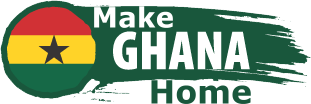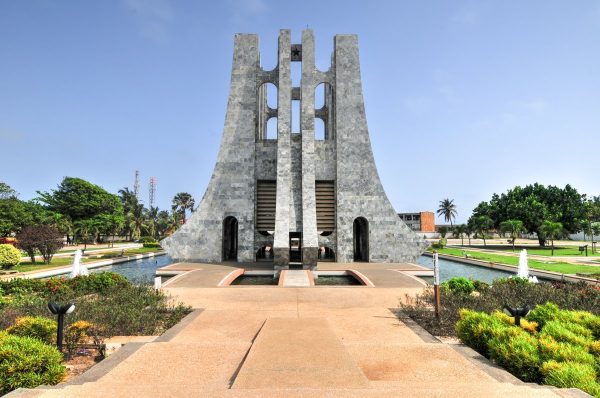U.S.-Ghana Relations
10 interesting facts about Ghana – By Petrina Darrah
Welcome to Ghana, a country located on the west coast of Africa, known for its rich cultural heritage, diverse ecosystems, and stable democracy. Ghana was the first sub-Saharan African country to gain independence from colonial rule, marking a significant milestone in the continent’s history. The name “Ghana” means “warrior king” in the Soninke language, reflecting the country’s past glories and achievements. Today, Ghana is a multicultural society with more than 100 ethnic groups and several religions, including Christianity and Islam. In this article, we will explore 10 interesting facts about Ghana, from its vibrant cultural traditions to its resource-rich economy and natural wonders..
1) Ghana was the first sub-Saharan African country to gain independence from colonial rule
Ghana was the first sub-Saharan African country to gain independence from colonial rule: Ghana was colonized by the British until it gained its independence on March 6, 1957, led by Ghana’s first president, Kwame Nkrumah. Ghana’s independence was a major milestone in the history of Africa, inspiring other African countries to fight for their independence from colonial powers. This event marked the birth of a new era in Africa, characterized by a spirit of freedom, hope, and dignity.
2) The name “Ghana” means “warrior king” in the Soninke language
The name “Ghana” means “warrior king” in the Soninke language: The name “Ghana” was adopted when the country gained independence in 1957, inspired by the ancient Ghana Empire that existed in West Africa from the 6th to the 13th century. The Ghana Empire was known for its strong military and trade relations with North Africa and the Mediterranean world. The name “Ghana” reflects the country’s rich history and cultural heritage, reminding its people of their past glories and achievements.
3) Ghana is known for its rich cultural traditions, including music, dance, and art
Ghana is known for its rich cultural traditions, including music, dance, and art: Ghana is home to a diverse array of ethnic groups, each with its unique cultural practices and traditions. Ghanaian music, for instance, is known for its lively rhythms, percussions, and vocals, ranging from highlife to hiplife, gospel to reggae. Ghanaian dance is characterized by its colorful costumes, energetic movements, and symbolic gestures, expressing the values and beliefs of the community. Ghanaian art is also famous for its bold and vibrant colors, depicting themes of everyday life, nature, and spirituality.
4) Ghana is located on the west coast of Africa
Ghana is located on the west coast of Africa: Ghana is situated on the Gulf of Guinea, bordered by Côte d’Ivoire to the west, Burkina Faso to the north, Togo to the east, and the Atlantic Ocean to the south. Ghana has a tropical climate, with temperatures ranging from 21 to 32 degrees Celsius, and two rainy seasons from April to June and from September to November.
5) The country is home to diverse ecosystems, including rainforests, grasslands, and coastal wetlands
The country is home to diverse ecosystems, including rainforests, grasslands, and coastal wetlands: Ghana’s geography is diverse, with a range of ecosystems that support a rich variety of flora and fauna. The country has six major vegetation zones, including the tropical rainforest in the south, the savanna grassland in the north, and the coastal wetlands along the Atlantic coast. Ghana’s wildlife includes elephants, antelopes, baboons, monkeys, crocodiles, and many bird species.
6) Ghana has several national parks and reserves, including Kakum National Park and Mole National Park
Ghana has several national parks and reserves, including Kakum National Park and Mole National Park: Ghana has several protected areas, including national parks, wildlife reserves, and forest reserves, covering about 16% of the country’s land area. Kakum National Park is a tropical rainforest reserve that is home to many bird species, monkeys, and other wildlife. Mole National Park is a savanna reserve that is home to elephants, antelopes, baboons, and many bird species.
7) Ghana is the world’s second-largest cocoa producer
Ghana is the world’s second-largest cocoa producer: Ghana is one of the largest cocoa producers in the world, second only to Côte d’Ivoire. Cocoa is Ghana’s main agricultural export, accounting for about 25% of the country’s total export earnings. Ghanaian cocoa is known for its high-quality and distinct flavor, produced by smallholder farmers who cultivate cocoa on small family farms.
8) The country has a growing oil industry and is also a major exporter of gold and other minerals
The country has a growing oil industry and is also a major exporter of gold and other minerals: Ghana is a resource-rich country, with significant deposits of gold, bauxite, manganese, and diamonds. In recent years, Ghana has also become a major player in the oil and gas industry, with offshore oil fields that produce over 200,000 barrels of oil per day. The oil industry has contributed to the country’s economic growth, but there are concerns about its impact on the environment and the need to ensure that the revenues from oil are used to benefit all Ghanaians.
9) Ghana is a stable democracy with a multi-party political system
Ghana is a stable democracy with a multi-party political system: Ghana is one of the few stable democracies in Africa, with a multi-party political system and a peaceful transition of power from one government to another. Ghana’s political stability is attributed to its commitment to democracy, respect for the rule of law, and a vibrant civil society. Ghana’s democracy is still young and faces some challenges, including corruption, inequality, and poverty, but the country has made significant progress in consolidating its democratic institutions.
10) Ghana has a diverse population with more than 100 ethnic groups and several religions, including Christianity and Islam
Ghana has a diverse population with more than 100 ethnic groups and several religions, including Christianity and Islam: Ghana is a multicultural society with a rich diversity of languages, traditions, and religions. The country has more than 100 ethnic groups, each with its unique customs and traditions, but united by a common identity as Ghanaians. Christianity is the largest religion in Ghana, followed by Islam, traditional religions, and other faiths. Despite religious and cultural differences, Ghanaians are known for their hospitality, warmth, and sense of community, making Ghana a welcoming destination for visitors.
In conclusion, Ghana is a country that offers a unique blend of history, culture, nature, and modernity. From the bustling streets of Accra to the tranquil beaches of Cape Coast, Ghana has something for everyone. Whether you’re interested in exploring the country’s ancient forts and castles, experiencing its vibrant festivals and music, or discovering its rich wildlife and natural resources, Ghana has it all.
Pay Consultation Fee $50
The consultation fee is $50 for 30mins to 1hr. And it’s for explaining. What’s needed to go to Ghana (vaccination, visa, health care concerns, also what’s needed to purchase land, cost of various lands, how long it takes to get land indentures in after payment. And also the process of picking a building style or submitting your own style for quotes on cost to build. And any other questions one might have. And you can have your choice of zoom and or FaceTime and or what’s app and or a live phone call.


